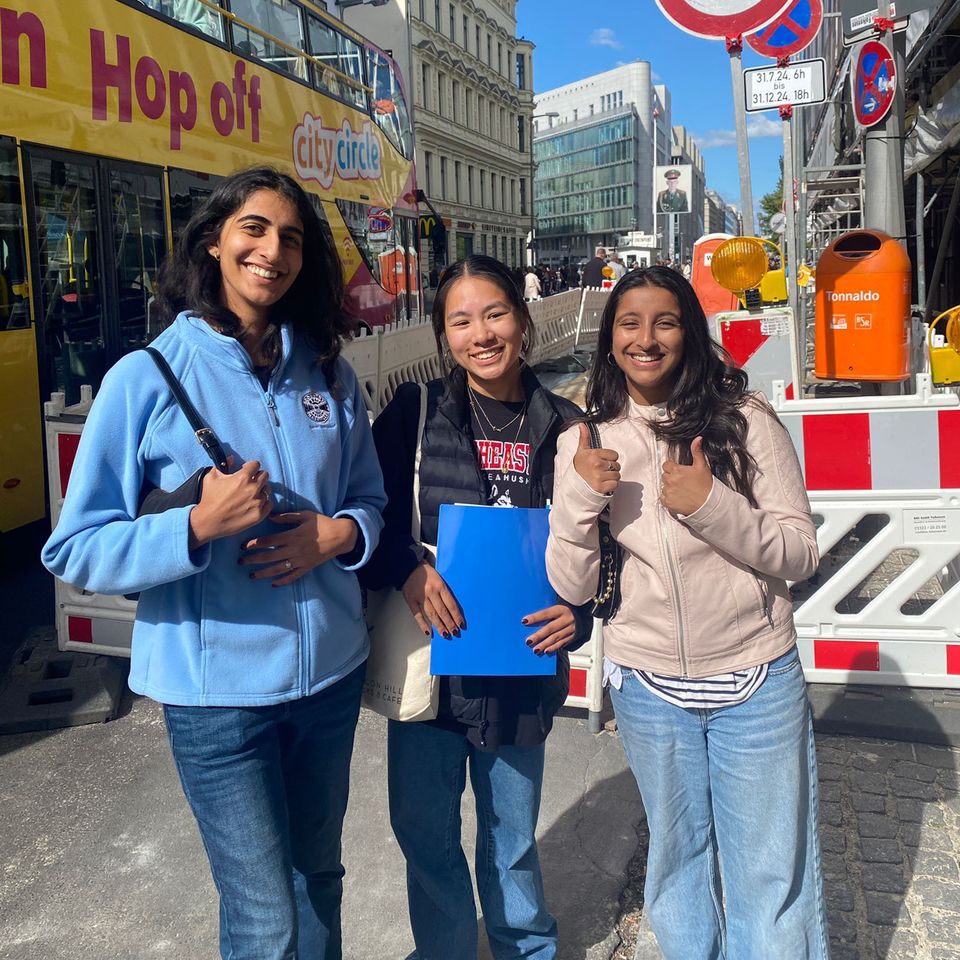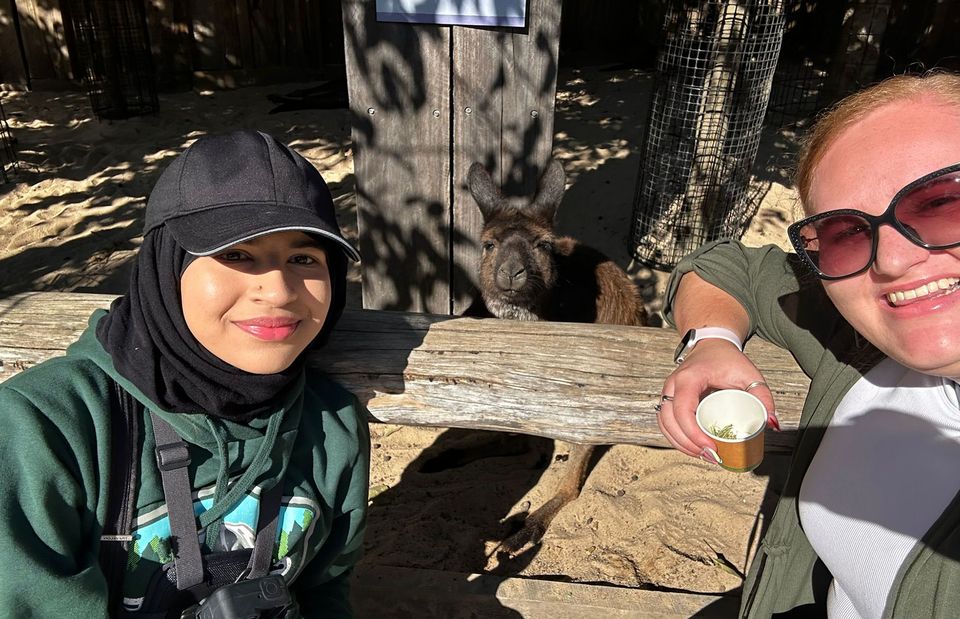5 Tips for Students Studying Abroad from Underrepresented Backgrounds
Navigating new cultures, understanding social dynamics, and building a sense of belonging in a foreign country can be complex, but for students from diverse and underrepresented backgrounds, studying abroad can come with additional layers of both challenge and reward.
International educational exchange experiences can present unique challenges, from feeling isolated to facing unexpected stereotypes, yet they also offer unparalleled rewards: Personal growth, resilience, and the chance to bring new perspectives to global communities. With the right preparation and support, you can turn challenges into a meaningful and empowering adventure.
With CIEE Study Abroad by your side, you’ll have support at every step of your journey. This post will equip you with the top five key tips for studying abroad as a student from an underrepresented background, so you can embrace all the rewards and opportunities that lie ahead.
Who are Underrepresented Students in Study Abroad?
Underrepresented students in study abroad generally include those from diverse racial and ethnic backgrounds, first-generation college students, low-income backgrounds, LGBTQ+ students, and students with disabilities. The Open Doors 2023 Report on International Educational Exchange reveals that among U.S. students who studied abroad in 2021–2022, 68.6% were White, followed by 11.9% Hispanic or Latino, 8.6% Asian or Pacific Islander, 5.3% Black or African American, 0.4% American Indian or Alaska Native, and 5.3% multiracial. These figures highlight the ongoing need to broaden access and make study abroad more inclusive for students of all backgrounds. Expanding representation can enrich the experience for everyone, fostering a broader exchange of perspectives and deeper cultural understanding.

Read More: Guide for Students of Color Studying Abroad: 4 Tips
Tips for Students Studying Abroad from Underrepresented Background
For students from underrepresented backgrounds, studying abroad is an exciting opportunity, but it may come with unique considerations. These study abroad tips will help you prepare, connect with supportive resources, and make the most of your experience abroad!
Tip #1: Explore CIEE City-Specific Resources
We offer city-specific resources to help students from diverse backgrounds feel supported and prepared as they settle into their host locations. Each guide provides practical insights on topics like navigating cultural differences, local LGBTQ+ support, racial and ethnic diversity, and religious practices in each city. By exploring these resources, students can gain a better understanding of the social landscape and connect with local support networks, making the transition smoother and helping them feel more at home abroad.
Tip #2: Seek out Diversity Abroad Scholarships
Financial assistance can make a huge difference in accessing study abroad. CIEE Study Abroad offers numerous scholarships and grants to help students from all backgrounds study abroad, such as:
- The Douglass-O’Connell Global Internship, which funds a free eight-week summer internship experience in Dublin, Ireland for student leaders of color
- The Gilman Go Global Grant, which provides up to $2,500 toward semester program fees for qualified Benjamin A. Gilman Scholarship applicants
- MSI Grants, which offer high-need students attending a Minority Serving Institution (MSI) up to $2,000 deducted from their semester program fees
These options can help cover program fees and expenses, making studying abroad more accessible for all students.

Read More: Top 10 Most Affordable Study Abroad Programs
Tip #3: Anticipate and Prepare for Culture Shock
Anticipating and preparing for culture shock is crucial, especially for students from underrepresented backgrounds who may face additional challenges in adapting to a new environment. Adjusting to a new environment can lead to feelings of disorientation or homesickness, but recognizing these emotions as a normal part of the process can help you cope.
To ease the transition, familiarize yourself with the local culture, customs, and language before you arrive. Engaging with fellow students, especially those who share similar backgrounds or experiences, can provide vital support and encouragement. Joining local cultural groups or communities can also foster a sense of belonging and help you navigate cultural differences. Remember, each challenge you face abroad is an opportunity for personal growth, resilience, and a broader worldview.
Read More: My Experience in Being a Black Woman in South Korea
Tip #4: Research the Culture, Politics, and History of Your Desired Destination
Understanding the social dynamics and historical context can help you navigate cultural differences and avoid potential misunderstandings. Familiarize yourself with local customs, current events, and key historical milestones that shape the identity of the community you’ll be entering. This knowledge not only enhances your cultural sensitivity but also enriches your overall experience, allowing you to engage more meaningfully with local communities. Doing your homework beforehand sets the stage for a more immersive and rewarding study abroad adventure.
Tip #5: Connect with Students, Alums, or Program Staff from a Similar Background
Connecting with fellow CIEE students, alums, ambassadors, or program staff from similar backgrounds can provide invaluable support and insights during your study abroad journey. These relationships foster a sense of community, making it easier to navigate challenges and share resources. Engaging with individuals who have firsthand experience can offer practical advice on adapting to cultural differences and accessing support networks. Furthermore, such connections can enhance your sense of belonging, ensuring you feel more comfortable and confident as you embark on this transformative adventure.

Leave Your Mark on the World
With thoughtful preparation, connections, and support, each step abroad becomes a part of your personal and academic journey, enriching not only your life but also those around you. CIEE Study Abroad is here to back you up with resources and a supportive community so you can confidently navigate this transformative experience and make it uniquely yours.

